Did you know that last month was National Poetry Month? An amazing young client of mine is pen pals with this year’s National Youth Poet Laureate. My client also earned an honorable mention for her haiku in this year’s National poetry competition. She does not let communication challenges stop her.
People with communication problems, frequently reject complex communication tasks because they fear they will fail. Challenges with reading, writing, and/or expressing ideas isn’t a reason not to write poetry, create and sing your own lyrics, give public speeches, or even speak up in a crowd. Weaknesses in speech and language should not limit your job opportunities or academic pursuits, but they often do.
Not understanding and managing communication problems decreases self-esteem, limits academic and career opportunities, and often leaves children thinking they are not “smart.” Many children and adults with communication problems need additional speech and language support. The first step to getting the right help is identifying the problem and finding the right intervention.
Identifying communication problems
Identifying the communication problems requires a multidisciplinary evaluation: It’s important to know that standardized tests give only a small glimpse of a person’s ability, but even so there is a lot of information that comes from these types of assessments. If you suspect a communication problem you will need an assessment from both a speech-language pathologist and a psychologist. Although psychologist often do some speech language testing it is not comprehensive enough to detect mild speech and language problems that can impact functioning.
Professionals that assess communication skills
- Speech pathologists – Assesses and treat all problems with
communication including reading, writing, executive function, and
verbal expression - Psychologist – Evaluates overall learning profile including executive function and give a basic broad overview of language skill
Evaluations can be requested through your local school. School testing especially speech and language testing can be limited. High functioning students with difficulty in language use ( usually seen in students on the spectrum and students with ADHD) or gifted students whose low language scores fall within the average range may appear not to qualify for services. Even though both groups can have significant speech and language problems traditional school testing may not identify be helpful. Private evaluators are usually more thorough, but expensive. They are more expensive because they will spend the time finding assessments and other measures that accurately assess your child’s skills.
Why would you still want to seek out treatment after the school says your child’s skills are adequate. If your child is struggling with homework or school work the likelihood is that the communication problems are interfering with their ability to successfully manage their academic load. Even mild communication problems, ones not thought to be low enough to warrant school intervention, can cause significant problems.
How do you find the best intervention?
There are many ways to approach finding the right intervention. Because of the many choices, there are things that should be taken into consideration, including but not limited to, the nature of the problem, severity, and adult or child’s learning style. Intervention can range from computer programs to homeschool style instruction to hiring a specialist. If considering hiring a specialist you want one that understands your needs and works with you and your child to address the problem. Finding an appropriate provider is challenging. Referrals from friends and family are great sources. Other sources include the internet, asking the school providers and asking your pediatrician. After identifying the communication problem the next step is finding the best intervention.
Identifying your style
Do you:
- Prefer using books and online resources to address the problem at home?
- Feel teaching your child at home is the best way to improve communication?
- Want a specialist to support your efforts?
- Use your pediatrician as a helpful resource?
- Choose to use activities to help your child work on the skills indirectly?
- Are you someone who thinks learning should be holistic?
- Does your child have other special considerations or needs?
Identify your child’s style
- Does your child learn best in groups or one on one?
- Would your child learn best by participating in outside activities that indirectly address the problem? ( i.e acting classes, music classes, team sports, debate club, poetry club etc.)
- Does your child need a lot of structure?
- Would a computer program work for your child?
- Is your child able to self-advocate to address their needs in school?
- Does your child hide their problems or are they oblivious to their challenges
Use this information to decide whether a computer program, small group instruction, outside activities, one on one intervention or a combination of intervention is the right choice for your family. There are many ways to address communication problems at home, in school, and in the community. Once you know the problem, level of severity, understand your personal style, and your child’s learning preferences making the right choices is easier.
Consider a private Speech-Language Pathologist
Although private services can be expensive they are beneficial in the long term. In case money is limited it’s important to decide whether it is best to spend money on private testing or use your money for treatment. It depends on whether you want the school to provide services or you plan to go elsewhere. With the condition that you are not trying to receive services through your local school system, one solution may be having the assessment done by the school. After testing a private Speech-language pathologist may be willing to use those recent test results to create an individualized treatment plan for your child. Using a private speech-language pathologist can be the right intervention because it offers a program tailored to your child.
Finally, after identifying an approach, it’s important to continue monitoring your child’s progress. If the problem is not improving or your child is not responding to the approaches you have chosen after several months then it may be time to re-evaluate.
Resources
Here is a story from Understood.org “Denied an IEP…” about a parents journey to find the right treatment for her child after the school said her child was ineligible for an IEP.


